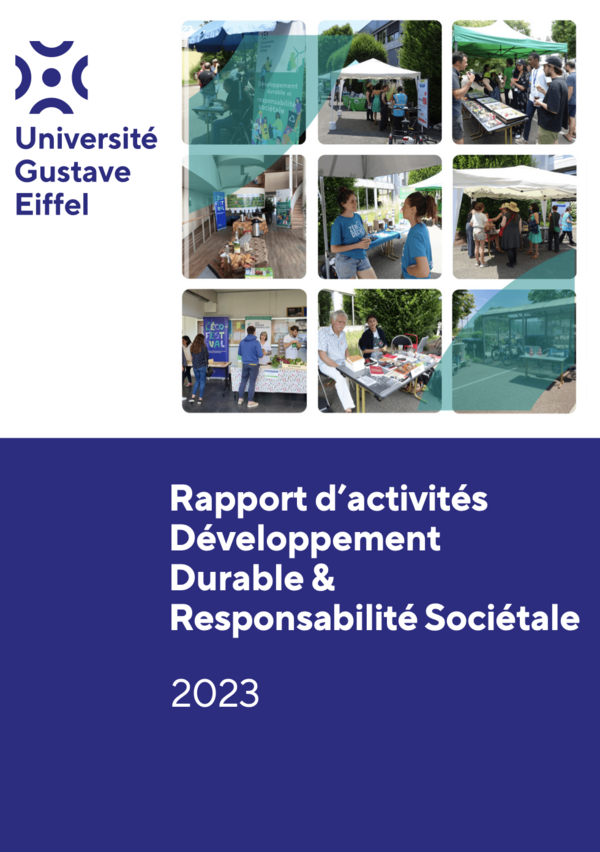The DD&RS Mission
The DD&RS mission was established in 2020 at Gustave Eiffel University to promote the commitment of all stakeholders to the crucial challenges of sustainable development and societal responsibility. The DD&RS mission aims to integrate these values at the core of the activities of various entities within the university, including services, units, and components, as well as among the student community.
Therefore, the institution aims to obtain the DD&RS label in 2025 (Sustainable Development Label for Higher Education Institutions).
Its role within the university
The SD&RS mission comprises 5 people. It is made up of around 65 advisers throughout France and around ten student contracts. These local relays help the SD&RS mission to disseminate information on subjects related to the socio-ecological transition and to carry out various projects such as events, local projects and communication initiatives.
Find the progress status of the institution regarding environmental, social, and governance aspects on the ZEI plateform.

The university's 2024-2030 SD&RS policy
The university's SD&RS policy is based on its SD&RS Master Plan 2024-2030 (french version), which was approved by the university's governing bodies in June 2024. This document comprises 6 areas :
1. Contribute to the dynamics of ecological, energy and social transition in the territories
2. Raising awareness and integrating socio-environmental issues into training and teaching programmes, and promoting learning related to sustainable development.
3. Capitalise on research findings on subjects related to SD&RS and shed light on controversies.
4. Develop a policy to reduce greenhouse gas emissions while guaranteeing the sustainable use of resources, or even their reduction.
5. Define a policy to reduce and prevent pollution and damage to health
6. Supporting staff career paths and improving the well-being of staff and students
Each area is broken down into objectives, accompanied by indicators and targets.
This master plan is consistent with other specific plans such as: the PINS master plan (Property, Digital and Scientific Assets), the SPASER (Plan for the Promotion of Socially and Ecologically Responsible Public Purchasing), the Plan for Improving the Quality of Student Life (PAVÉ) and the Equality Plan.
From 2025, an annual review will be carried out. An annual roadmap will detail the implementation of future actions.
